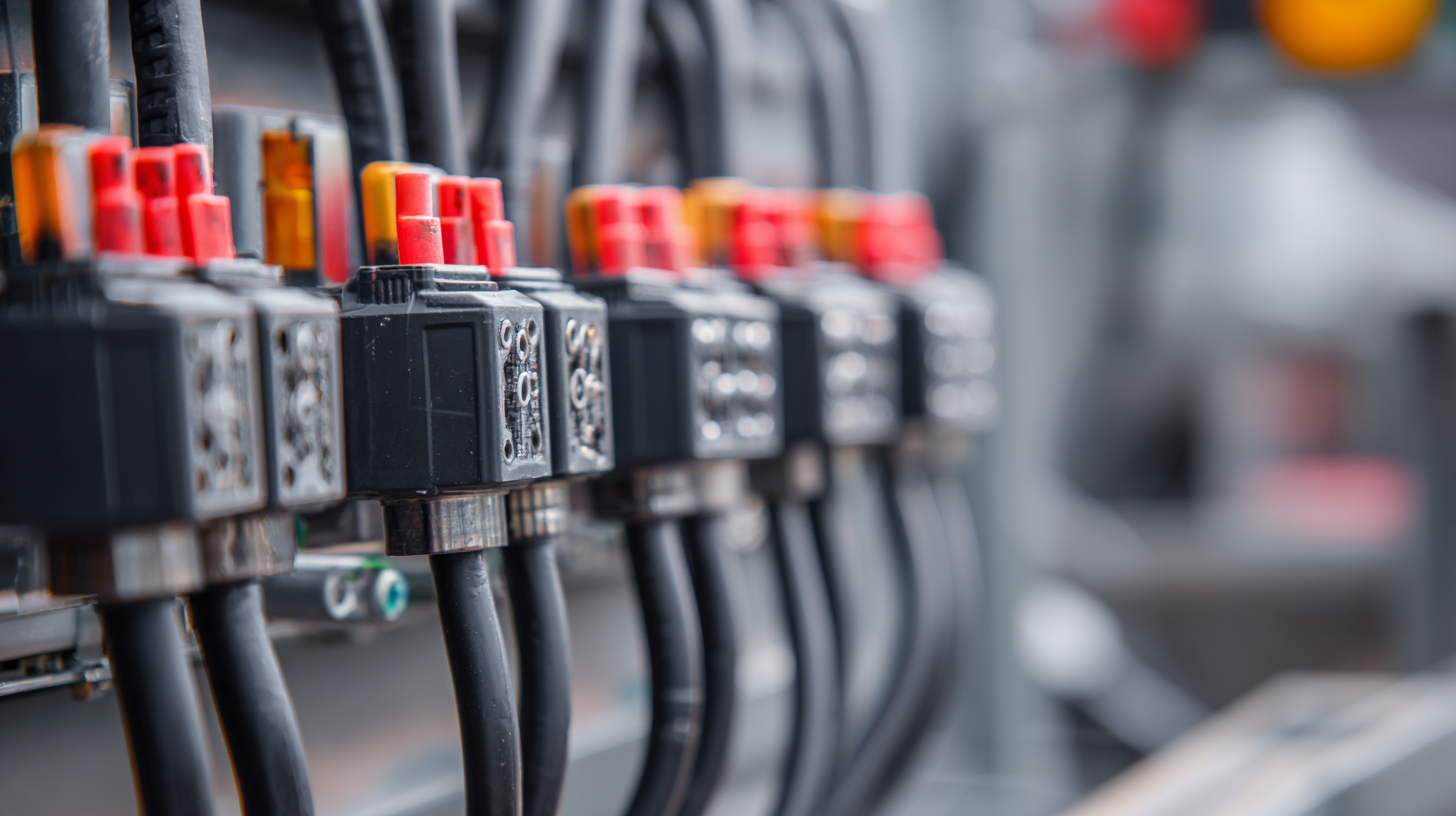Top 15 Battery Suppliers with Industry Certification for Import Export Success
In the rapidly evolving landscape of battery technology, the role of qualified Battery Suppliers has never been more critical for import-export success. According to a recent report by the International Energy Agency, global battery demand is expected to triple by 2030, driven largely by the surge in electric vehicles and renewable energy storage applications. In this context, ensuring compliance with rigorous industry certifications is essential for suppliers to gain a competitive edge and meet international trade standards. Importers and exporters alike must navigate a complex web of regulations, making the selection of certified Battery Suppliers a pivotal factor in securing profitable and sustainable trade relationships.

This article will explore the top 15 battery suppliers recognized for their industry certifications, offering insights on how businesses can leverage these partnerships for success in the global market.
Key After-Sales Service Advantages Offered by Top Battery Suppliers
In the competitive landscape of battery supply, after-sales service has become a crucial differentiator among top suppliers. Strong after-sales support not only enhances customer satisfaction but also fosters long-term relationships. Leading battery suppliers often offer extensive warranty packages, ensuring that clients can rely on their products for a considerable period. This commitment to quality and customer care allows buyers to navigate potential issues with confidence, safeguarding their investments.

Tips for choosing a battery supplier with robust after-sales service include assessing their warranty terms and response times for claims. A supplier that provides clear guidelines on service and maintenance can significantly reduce headaches down the line. It’s beneficial to choose suppliers that also offer training sessions or online resources for their products, empowering personnel to handle minor issues independently.
Another aspect to consider is the availability of technical support. Top suppliers often have dedicated teams ready to assist with any inquiries, enabling you to maximize the efficiency of battery usage in your operations. Ensure you inquire about their support channels, such as phone, email, or chat services, to gauge how readily they can assist when needed. Prioritizing these factors will lead to a more successful and trouble-free import-export experience.
Understanding Repair Costs: What to Expect During Battery Maintenance
When it comes to battery maintenance, understanding repair costs is essential for both consumers and businesses. Battery repairs can vary widely depending on several factors, such as the type of battery, its age, and the nature of the problem.
 For instance, lithium-ion batteries, commonly used in electric vehicles and mobile devices, might require specific expertise, which could affect the labor costs associated with repairs. Additionally, replacement parts, like cells or modules, can also contribute to the overall expenditure, making it crucial to get an accurate assessment from qualified technicians.
For instance, lithium-ion batteries, commonly used in electric vehicles and mobile devices, might require specific expertise, which could affect the labor costs associated with repairs. Additionally, replacement parts, like cells or modules, can also contribute to the overall expenditure, making it crucial to get an accurate assessment from qualified technicians.
Furthermore, regular maintenance can significantly reduce the chances of costly repairs down the line. Implementing routine checks and following manufacturer guidelines can help identify small issues before they evolve into major problems.
Understanding the typical expenses involved in battery upkeep — including potential repair costs, labor charges, and parts — allows users to budget accordingly and plan for future maintenance. Educating oneself about these costs not only ensures long-term efficacy but also reinforces the importance of investing in quality battery suppliers who provide industry-certified products and services.
How to Choose the Right Battery Supplier for Export Success
When selecting the right battery supplier for export success, the first step is to assess their industry certifications. Certifications such as ISO 9001, UL, and IEC indicate a company’s commitment to maintaining quality standards and adhering to safety regulations. Verified certifications not only assure reliability but also enhance the confidence of international clients in the products being offered. Thus, conducting thorough due diligence on a supplier's credentials can save you from potential compliance issues and costly setbacks in the export process.

In addition to certifications, it’s crucial to evaluate the supplier's reputation and experience within the industry. Researching reviews, testimonials, and case studies can provide valuable insights into their capabilities and customer service approach. Engaging with suppliers who have a history of successful international transactions demonstrates their understanding of logistics, customs regulations, and market demands. Ultimately, partnering with a well-established supplier who meets these criteria can significantly boost your export success and streamline your entry into competitive markets.
Best Practices for Managing Import and Export of Certified Batteries
When managing the import and export of certified batteries, it is crucial to adhere to best practices that ensure compliance with industry standards and foster successful trade relationships. According to a recent report by the International Battery Association, global demand for batteries is projected to grow by over 20% annually through 2030, driven significantly by the rise in electric vehicles and renewable energy applications. This surge in demand underlines the importance of sourcing batteries from suppliers with established industry certifications such as ISO 9001 and IEC 62133, which assure product quality and safety.
Moreover, maintaining clear communication with suppliers and staying updated on regulatory changes is indispensable. The Global Battery Alliance estimates that over 60% of battery materials are traded internationally, thus understanding tariffs, trade agreements, and import regulations can greatly impact profitability. Implementing a rigorous due diligence process when evaluating suppliers can help mitigate risks associated with counterfeit products or non-compliance. By following these best practices, companies can navigate the complex landscape of battery import and export while leveraging the burgeoning market.
Evaluating Industry Certifications: Why They Matter for Battery Suppliers
When it comes to sourcing batteries for import and export, understanding industry certifications is crucial for establishing trust and ensuring product quality. Certifications such as ISO, UL, and CE signal that a battery supplier adheres to stringent standards regarding safety, performance, and environmental impact. These credentials help buyers mitigate risks by guaranteeing that the products meet internationally recognized benchmarks, thus facilitating smoother transactions across borders.
Moreover, industry certifications can significantly influence a supplier's reputation and marketability. In a competitive landscape, having certified products not only enhances credibility but can also lead to better pricing strategies and stronger partnerships. Batteries with recognized certifications are more likely to pass through regulatory inspections without significant issues, making them preferable choices for distributors looking to maintain compliance while meeting customer demands. Ultimately, being aware of the certifications that matter can empower importers and exporters to make informed decisions, fostering success in their transactions.
